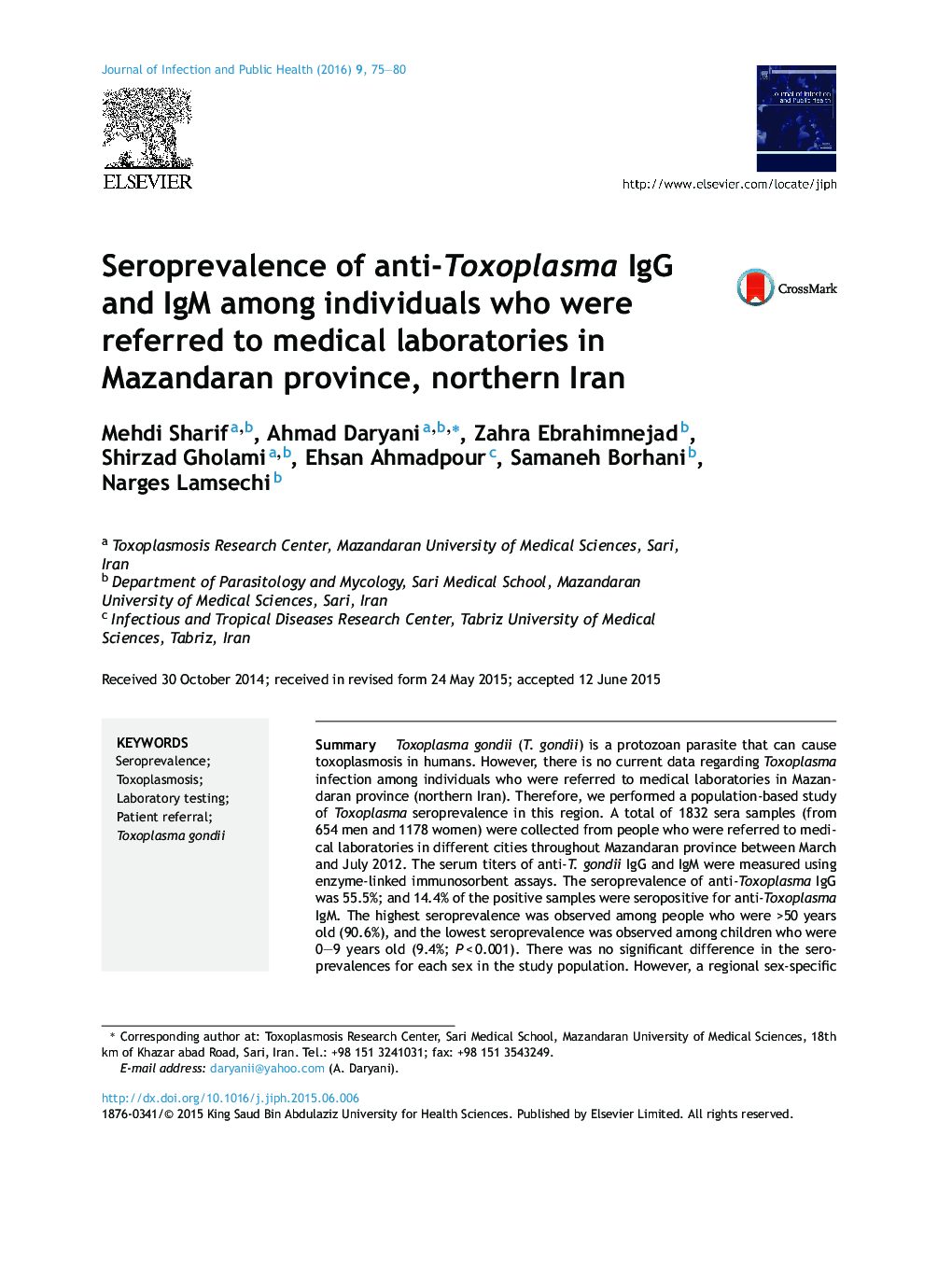| Article ID | Journal | Published Year | Pages | File Type |
|---|---|---|---|---|
| 3405928 | Journal of Infection and Public Health | 2016 | 6 Pages |
SummaryToxoplasma gondii (T. gondii) is a protozoan parasite that can cause toxoplasmosis in humans. However, there is no current data regarding Toxoplasma infection among individuals who were referred to medical laboratories in Mazandaran province (northern Iran). Therefore, we performed a population-based study of Toxoplasma seroprevalence in this region. A total of 1832 sera samples (from 654 men and 1178 women) were collected from people who were referred to medical laboratories in different cities throughout Mazandaran province between March and July 2012. The serum titers of anti-T. gondii IgG and IgM were measured using enzyme-linked immunosorbent assays. The seroprevalence of anti-Toxoplasma IgG was 55.5%; and 14.4% of the positive samples were seropositive for anti-Toxoplasma IgM. The highest seroprevalence was observed among people who were >50 years old (90.6%), and the lowest seroprevalence was observed among children who were 0–9 years old (9.4%; P < 0.001). There was no significant difference in the seroprevalences for each sex in the study population. However, a regional sex-specific difference in seroprevalence was observed between men (54.1%) and women (70.6%; P = 0.003) in the western cities of Mazandaran. As the seroprevalence of T. gondii in western and eastern Mazandaran was higher than that in the central cities, there is a need to evaluate the nature of the infection chain in these areas.
